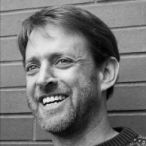Mike Mentzer is a former Mr. Universe, who had unique theories about strength training and bodybuilding.
He was an extreme proponent of “high intensity training,” meaning he recommended short, very intense bouts of exercise followed by lots and lots of rest. Many years ago, reading his books and articles completely transformed the way I looked at weight training.
To this day, my workouts are typically very short and very intense, based on Mentzer’s philosophy.
Perhaps one of the most important aspects of his training method is the belief in the value of rest. I remember in one of his books, he told the story of inviting several of the world’s top bodybuilders to his home for a “training camp.”
Although these were all elite athletes who had “maxed out” in size, he promised them that if they spent a few days with him, their muscles would grow even more. Most accepted the invitation—but were skeptical that they would see any results since they had already been training as hard as they possibly could and had all reached plateaus, that they simply could not pass.
When the day arrived, they all showed up at Mentzer’s house, wondering what kind of intense program he had in store that would get all of these bodybuilders, already in peak condition, to get even bigger.
High Intensity Training the Mike Mentzer WayTo their surprise, Mentzer did not lead them to the gym and did not push them to do any exercises whatsoever; he told them to rest.
For three days, he told them to relax, lie by the pool, eat some good, healthy food and just enjoy a break from training. Mentzer’s theory was that every bodybuilder there was overtrained.
And, after three days of rest, every single one of them had an increase in their muscle measurements.
The principles of Mike Mentzer’s “high intensity training” don’t apply only to bodybuilding. There is a balance of challenge and rest that is required for growth and development in just about every area.
The problem is, like those overtrained bodybuilders, we typically understand the need for challenge and forget about the need for rest.
I am no different.
I believe, so much, that hard work leads to success, persistence will pay off, effort is the key to reward, that I often forget the need for rest, recovery and rebuilding. I love to challenge myself—but it is hard for me to truly rest, without feeling like I’m wasting my time.
In yoga, the period of rest at the end of a workout is called savasana. Usually, a few minutes at the end of every class is reserved for this rest period, lying in “corpse pose,” to allow the body to recover and rejuvenate from the workout.
It is not my natural tendency to enjoy this part of the class.
When the teacher calls for savasana, my first reaction is to gauge my distance from the door and wonder if I could grab my shoes and sneak out before anyone notices. But, once I do reluctantly settle into the floor and relax into the pose, I’m usually glad I did.
photo: flickr/Joe ShlabotnikThe peace and clarity that I feel when my workout ends like this, is far greater than it is when I jump up from my last downward dog and scurry out the back of the room like a shoe burglar in the night.
The importance of rest applies to every domain.
One Swedish study on well-being found that psychological stress and musculoskeletal injuries were both more likely to be caused by a lack of rest than by the amount of workload.
So, how does “resting” fit into your workout plan, your career path and your personal development?
Think about the areas where you really challenge yourself and ask yourself if you have been pushing too hard.
What would happen if you gave yourself a break?
Try it—take a few days off—you might be surprised at how much you grow.
References and Recommended Reading:
Honore, C. (2005). In Praise of Slow: How a Worldwide Movement is Challenging the Cult of Speed. Orion.
Loehr, J. & Schwartz, T. (2004). The Power of Full Engagement: Managing Energy, Not Time, Is the Key to High Performance and Personal Renewal. New York: Free Press.
Lundberg, U. (2003). Psychological stress and musculoskeletal disorders: psychobiological mechanisms. Lack of rest and recovery greater problem than workload, in Lakartidningen, 100(21): 1892-5. [abstract]
Mentzer, M. & Little, J. (2002). High-Intensity Training the Mike Mentzer Way. New York: McGraw-Hill.
~
Editor: Bryonie Wise
Like elephant health & wellness on Facebook.











Read 1 comment and reply